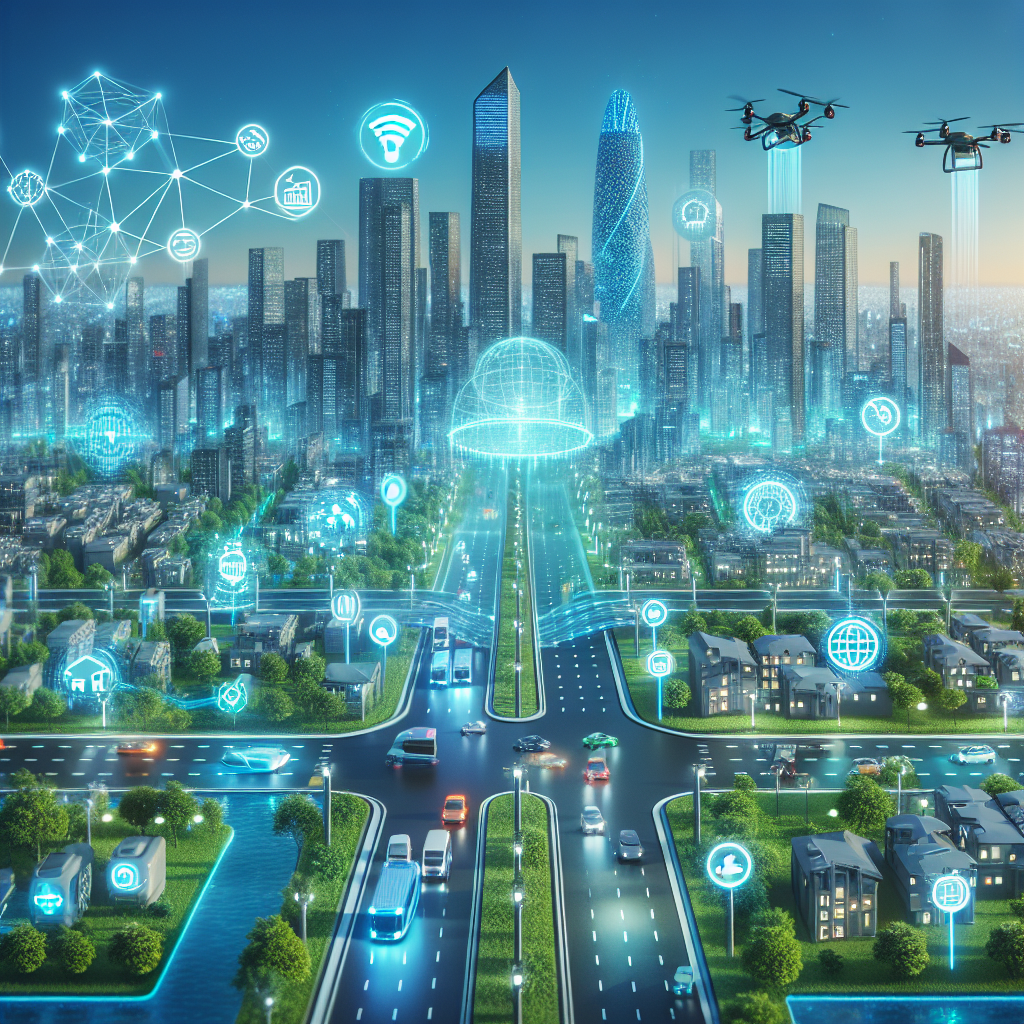AI-Powered Smart Cities: The Future of Urban Governance
In recent years, the concept of smart cities has gained significant momentum as urban areas around the world seek to leverage technology to improve the quality of life for residents and enhance the efficiency of city operations. One of the key components of smart cities is the integration of artificial intelligence (AI) technology, which has the potential to revolutionize urban governance and transform the way cities are managed.
AI-powered smart cities use advanced technologies such as machine learning, data analytics, and the Internet of Things (IoT) to collect and analyze vast amounts of data from various sources, including sensors, cameras, and other connected devices. This data is then used to optimize city services, improve decision-making, and enhance the overall quality of life for residents.
One of the key benefits of AI-powered smart cities is the ability to predict and prevent problems before they occur. For example, AI algorithms can analyze data from traffic sensors to identify patterns and predict traffic congestion before it occurs, allowing city officials to take proactive measures to alleviate congestion and improve traffic flow. Similarly, AI can be used to analyze data from weather sensors to predict severe weather events and help city officials prepare for and respond to emergencies more effectively.
Another key benefit of AI-powered smart cities is the ability to optimize city services and infrastructure. AI algorithms can analyze data from various sources to identify inefficiencies and recommend improvements to city services, such as public transportation, waste management, and energy distribution. By optimizing city services, AI-powered smart cities can reduce costs, improve service quality, and enhance the overall livability of urban areas.
In addition to improving city services and infrastructure, AI-powered smart cities can also enhance public safety and security. AI algorithms can analyze data from surveillance cameras, social media, and other sources to identify potential threats and predict criminal activity. This information can then be used to deploy resources more effectively, improve emergency response times, and prevent crime before it occurs.
Overall, AI-powered smart cities have the potential to revolutionize urban governance by leveraging technology to improve the efficiency of city operations, enhance the quality of life for residents, and promote sustainable development. However, there are also challenges and concerns associated with the implementation of AI-powered smart cities, including privacy issues, data security risks, and concerns about algorithmic bias.
FAQs
Q: What is an AI-powered smart city?
A: An AI-powered smart city is a city that leverages advanced technologies such as artificial intelligence, machine learning, and data analytics to collect and analyze data from various sources, including sensors, cameras, and other connected devices. This data is then used to optimize city services, improve decision-making, and enhance the overall quality of life for residents.
Q: What are the benefits of AI-powered smart cities?
A: AI-powered smart cities offer a wide range of benefits, including the ability to predict and prevent problems before they occur, optimize city services and infrastructure, enhance public safety and security, and promote sustainable development.
Q: What are some of the challenges and concerns associated with AI-powered smart cities?
A: Some of the challenges and concerns associated with AI-powered smart cities include privacy issues, data security risks, and concerns about algorithmic bias. It is important for city officials to address these issues proactively and implement safeguards to protect the privacy and security of residents’ data.
Q: How can residents participate in the development of AI-powered smart cities?
A: Residents can participate in the development of AI-powered smart cities by providing feedback to city officials, participating in community forums and workshops, and staying informed about the latest developments in smart city technology. By engaging with city officials and other stakeholders, residents can help shape the future of urban governance and ensure that AI-powered smart cities are designed to meet the needs and preferences of the community.
In conclusion, AI-powered smart cities represent the future of urban governance, offering a wide range of benefits and opportunities for cities to improve the quality of life for residents, enhance the efficiency of city operations, and promote sustainable development. By leveraging advanced technologies such as artificial intelligence, machine learning, and data analytics, cities can transform the way they are managed and create more livable, efficient, and resilient urban environments for all residents.

